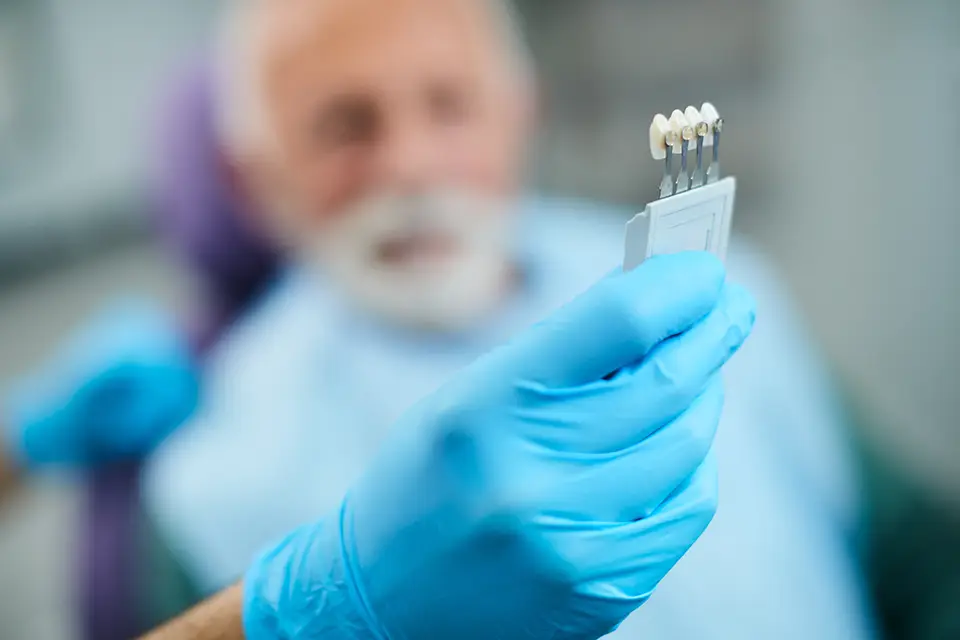Dental implants have transformed tooth replacement by providing a long-term, natural-looking solution for missing teeth. Many patients prefer dental implants because they offer excellent function and aesthetics, closely resembling the appearance of natural teeth. However, one common concern among patients is why dental implants take so long to heal compared to other dental treatments.
If you’re considering dental implants or are in the healing phase, understanding why this process takes time can help set expectations and improve your recovery experience.
What Is the Healing Process for Dental Implants?
The healing period following dental implant surgery is unique and critical to the implant’s long-term success. Unlike dentures or bridges, dental implants require a biological process known as osseointegration. This is when the titanium implant post, surgically inserted into your jawbone, gradually bonds with the surrounding bone tissue.
Osseointegration is necessary because it provides a solid, stable foundation for your replacement tooth. This fusion process typically takes several months, which explains why dental implants take so long to heal. The extended healing time ensures that your implant is fully integrated, resulting in the durability and stability that you expect from this treatment.
Why Do Dental Implants Take So Long to Heal?
There are several reasons why dental implants require an extended healing period:
1. Bone Integration Takes Time
Unlike placing a crown or a bridge, where the dentist works primarily with your teeth and gums, dental implants involve your jawbone. The implant must bond securely with the bone through a process called osseointegration.
Bone cells grow around the implant and attach to its surface, firmly anchoring it. This natural process cannot be rushed because the implant must integrate into your anatomy to function as a natural tooth root. This integration phase typically lasts three to six months, but it can vary depending on the individual’s health and bone quality.
2. Your Body's Natural Healing Response
Healing from dental implant surgery is about how your entire body responds, not just the implant. Following surgery, your body begins to repair tissues and regenerate bone where the implant was placed.
This healing process involves inflammation, the formation of new tissue, and bone remodeling. Each phase is essential and can take some time, primarily because bone is denser and heals more slowly than soft tissues, such as gums. The more trauma or surgery involved, such as bone grafting or sinus lifts, the longer the healing process may take.
3. Quality and Quantity of Bone
Healing and osseointegration are usually faster when your jawbone is dense and healthy. However, if there is bone loss or poor bone quality due to previous tooth loss, periodontal disease, or other causes, additional procedures, such as bone grafting, may be required before the implant can be placed.
These preparatory steps lengthen the overall treatment and healing time because the grafted bone must heal and integrate before the implant surgery can be performed.
4. General Health and Lifestyle Factors
Your overall health has a significant impact on how quickly you heal. Chronic conditions such as diabetes or autoimmune disorders can delay bone regeneration and tissue repair.
Smoking is another significant factor that slows healing by reducing blood flow to the gums and bone. Similarly, excessive alcohol consumption, poor nutrition, and poor oral hygiene can all impede the healing process. Maintaining a healthy lifestyle and carefully following your dentist’s instructions can help you recover more quickly.
5. Surgical Complexity
The complexity of your dental implant surgery can also influence healing time. For example, simple implant placement in a healthy jawbone will typically heal faster than multiple implants, implant-supported dentures, or surgeries that require sinus lifts or extensive grafting.
The more involved the surgery, the longer it will take for your body to heal fully.

The Step-by-Step Implant Healing Journey
Understanding the stages of healing helps patients comprehend why dental implants require a longer healing period and the importance of patience.
- Initial Consultation and Planning: Your dentist evaluates your oral health and bone density to develop a personalized treatment plan.
- Implant Placement Surgery: The titanium post is surgically inserted into the jawbone. You may experience swelling, discomfort, and minor bleeding right after surgery.
- Osseointegration Period: Over the next 3 to 6 months, the implant fuses with your jawbone. During this time, avoid applying too much pressure to the implant site to allow for proper healing.
- Abutment Placement: Once integration is complete, an abutment (connector) is attached to the implant. This procedure usually involves minor gum surgery and a few weeks of additional healing time.
- Crown Placement: After the gums heal around the abutment, your custom-made crown is attached, completing the restoration.
Each stage necessitates healing time to ensure the implant’s success and longevity.
Tips to Promote Faster Healing
While you can’t rush biological healing, there are steps to support your recovery and possibly reduce healing time:
- Follow Post-Operative Instructions: Careful adherence to your dentist’s guidelines on diet, oral hygiene, and activity is essential.
- Maintain Good Oral Hygiene: To prevent infection, gently clean the implant site without aggressive brushing or rinsing.
- Avoid Smoking and Alcohol: These habits reduce blood supply and slow healing.
- Eat Nutritious Foods: A nutritious diet promotes tissue repair and bone growth.
- Rest and Manage Stress: Allow your body the energy it needs to heal.
Frequently Asked Questions (FAQs)
How long does it usually take for dental implants to heal?
On average, dental implants take between three to six months to heal fully due to the osseointegration process. However, this time can vary depending on the individual’s health, bone quality, and the complexity of the surgery.
Does the healing process hurt?
Mild discomfort, swelling, and bruising are common after implant surgery, but they usually resolve within a few days to a week. Your dentist will offer pain management options to keep you comfortable.
Can I eat normally after dental implant surgery?
After surgery, it’s best to eat soft foods and avoid chewing directly on the implant site until it heals. Your dentist will provide you with specific dietary guidelines to follow during your recovery.
Understanding why dental implants take so long to heal helps patients appreciate the importance of the healing process for a successful and long-lasting outcome. Sunshine Dentistry in Richmond Hill, Ontario, prioritizes patient education and care throughout the dental implant process. If you are considering implants or have questions about your healing process, contact our friendly team to schedule a consultation. We’re here to make sure your experience is smooth, comfortable, and successful.



